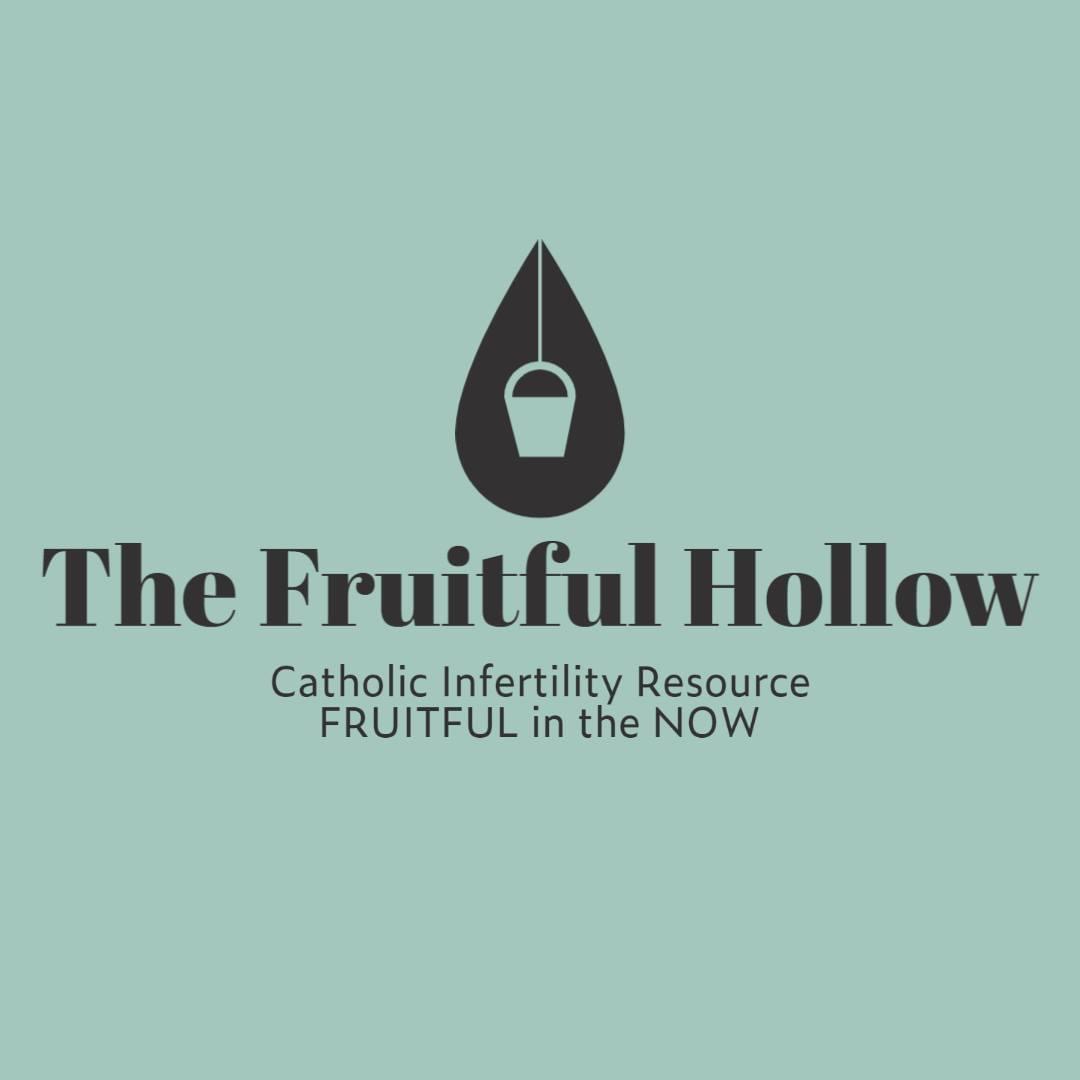As a non-Catholic, I stood between my wife and IVF
- thefruitfulhollow

- Mar 26, 2025
- 5 min read
Updated: May 5, 2025
Seven years into our fertility journey, I sat across from my husband, recording our conversation about a pivotal moment in our marriage, a moment that, ironically, he doesn't even remember. As his wife, I vividly recall the day his words about IVF made me realize that pursuing it might create an unbridgeable gap in our relationship. As we talked, the layers of our shared experience began to unfold, revealing how differently we've processed this path of infertility and how these differences have ultimately strengthened our relationship.

The initial journey
Like many couples, we began with a hope tinged with sadness. "I was sad but optimistic that it would happen eventually. In fact, I still am optimistic that it can happen," my husband reflected, his words echoing the simple faith we carried in those early days. His vision of building our family was beautifully straightforward: "Having sex until I got you pregnant." Looking back now, I can't help but smile at how naive we were about the complexity of the path ahead.
As months turned into years, that initial optimism transformed into something deeper and more complex. "Sometimes questioning if hope is a good thing to have or if it will turn around and bite you," he shared, revealing the delicate balance between maintaining hope and protecting one's heart.
While I grappled with the deep-seated grief of potential childlessness, my husband's perspective evolved in an unexpected direction: "In the last seven years, I've had moments of sadness about this," he admitted, "but it's different from you. My moments don't start with the failure to become a dad, so it's not at the core. I realize that what I am doing in the world better be extremely good to have an impact because I cannot rely on my children to have an impact."
The medical experience
Our infertility journey started six years before I became Catholic. Our medical interventions were standard for the first several years, and eventually, we were left with IUI and IVF. During our IUI attempts, my husband felt increasingly disconnected from the process. The clinical nature of fertility treatments struck him deeply. Watching a nurse perform the IUI procedure left him feeling like an outsider in what should have been an intimate moment of creating life. During discussions about IVF, a moment occurred that's seared into my memory, though my husband doesn't even remember it. I was desperate. The kind of desperation that makes you willing to burn everything to the ground if it means getting what you want. I would have happily destroyed our financial future, maxed out credit cards, taken out loans, whatever it took to become a mother. But then my husband said something that hit me like a punch to the gut: "The decision is yours because it wouldn't involve me, except for semen donation."
At that moment, I realized I was so focused on becoming a mother that I was focused on the wrong thing. The same man who felt uncomfortable just watching an IUI procedure would be completely alienated from the creation of our family. My desperation to become a mother was threatening to destroy the very partnership that made me want to build a family in the first place.
The hidden struggles of husbands
What often goes unspoken in fertility journeys is the unique emotional landscape that husbands navigate. "No one cares about the husband and how he feels during this," my husband admitted, initially trying to brush it off as if it wasn't significant. But beneath this attempted dismissal lies a truth about how men's struggles with infertility often go unacknowledged, their pain silent and unseen.
The way men and women process this journey differs significantly. While women often find themselves in spaces where conversations naturally turn to children and parenting, intensifying our grief, men's support systems operate differently. "Men have bars, gaming groups, and other spaces for emotional support away from kids," my husband explained. In these spaces, they can "shoot the breeze," finding respite through moments of escape where the weight of childlessness temporarily lifts.
The journey of infertility touched every aspect of our marriage, including our intimate relationship. The scheduled nature of trying to conceive brought its own challenges. While my husband found comfort in our physical connection during these times, he came to understand how the monthly cycle of hope and disappointment affected my heart and, consequently, my desire for intimacy. Learning to nurture our connection while honoring each other's emotional needs became another delicate aspect of our shared journey.
Like many aspects of infertility, the husband's journey often remains in the shadows, overshadowed by the more visible grief of their wives. Yet their experience, though different, carries its own weight and wisdom. Their struggle deserves acknowledgment, their pain deserves space, and their perspective offers valuable insights into how couples can navigate this challenging path together.
Walking the path together
When navigating fertility decisions in an interfaith marriage, especially regarding IVF, the journey requires extraordinary tenderness and understanding from both spouses. As someone who has walked this path with my non-Catholic husband, I've learned that creating space for open, honest dialogue is crucial.
For Catholic spouses, your commitment to Church teaching on the sanctity of life comes from a place of deep faith and conviction. For non-Catholic spouses, your desire to explore all medical options stems from hope and love. Both perspectives deserve to be heard with compassion and without judgment.
The key is to focus first on understanding each other's hearts rather than defending positions. Share your fears, hopes and beliefs while remaining open to how your spouse's perspective might reveal unexpected wisdom. In our case, my husband's observation about feeling disconnected from the IUI and IVF process revealed a truth that transcended Church teaching. It spoke to the heart of marriage as a unified journey where both spouses should feel fully engaged in growing their family in the intimacy of the marital embrace.
Looking back at that pivotal IVF moment, my husband's words carry both wisdom and weight. Like many couples, we learned these hard lessons through years of waiting: waiting for natural conception, waiting to make decisions about medical interventions, and waiting to understand God's plan. It's wisdom earned through pain, but it's what we hope others might take to heart before facing the same difficult choices.
Our journey has taught us to broaden our definition of family building and impact. "You want to leave an impact on the world? Impact a child that already exists." The weight of these words struck me particularly deeply because my husband was always the one hesitant about adoption. The same $25,000 that might fund one IVF cycle could go towards transforming an existing child's life through adoption.
While we have tried to walk through the door of adoption several times over the past three years, encountering closed doors along the way, we've learned to remain open to possibilities, understanding that God's timing often unfolds differently than we expect.





